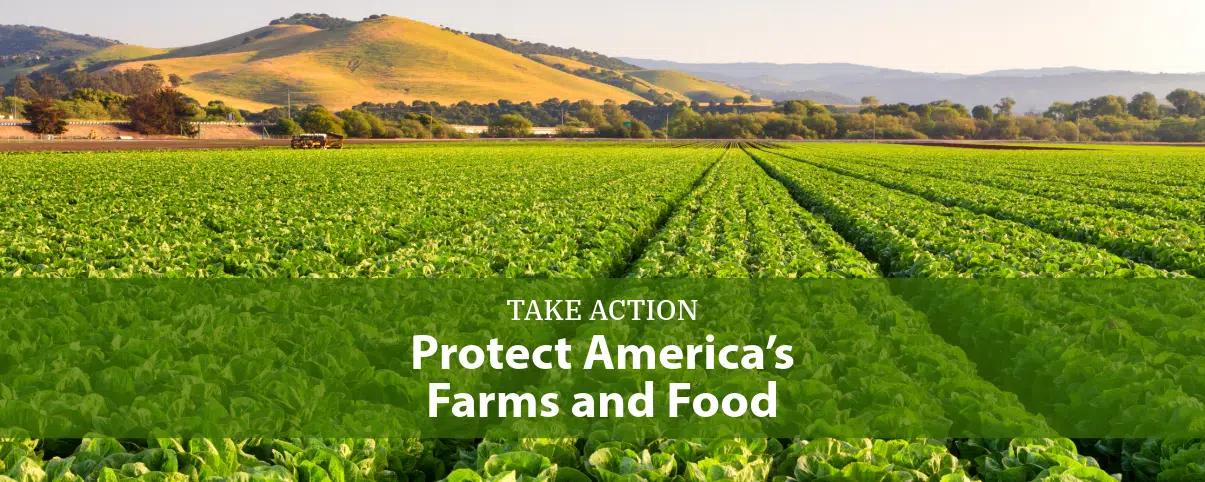
To: The U.S. House of Representatives
As your constituent, I’m writing to express deep concern about Section 507 of the House FY26 Interior, Environment, and Related Agencies Appropriations Bill, which seeks to block the U.S. Environmental Protection Agency (EPA) from finalizing or acting on its Draft Risk Assessment for PFOA and PFOS in Sewage Sludge.
Across the country, toxic PFAS chemicals – often called “forever chemicals” – are showing up in soil, crops, meat, milk, eggs, and drinking water due to the land application of sewage sludge. These chemicals are linked to serious health problems, including cancer, hormone disruption, reproductive harm, and immune dysfunction.
In January 2025, EPA published a Draft Risk Assessment to better understand and evaluate the threats posed by PFAS in sewage sludge. This risk assessment is vital. PFAS-contaminated sludge has been linked to pollution of farmland, food, drinking water, and livestock.
But Section 507 would halt this critical work. It would prohibit EPA from implementing, administering, enforcing, or even finalizing the Draft Risk Assessment. Worse, the language goes beyond just the FY26 appropriations bill – seeking to permanently bar the use of federal funds from this (or any other act) for the Draft Risk Assessment. In effect, Section 507 would permanently block EPA from advancing the Draft Risk Assessment, now or in the future.
If allowed to move forward, the risk assessment could finally lead to long-overdue protections for American farmland and those living and working the land. But Section 507 of the House spending bill threatens to stop that progress cold. It would prevent EPA from finalizing the science, let alone acting on it.
I urge you to stand up for communities impacted by PFAS contamination and work to remove Section 507 from the final FY26 appropriations package. EPA must be allowed to finish its work and protect the public from harmful PFAS exposure. Please stand up for farmers. Let EPA do its job.
Thank you for your leadership and attention to this critical issue.
WHY IS THIS IMPORTANT?
Across the country, sewage sludge – a toxic byproduct of the treatment of wastewater from homes, businesses, industrial facilities, and landfills – is being sold, promoted and used as a “beneficial” fertilizer. For decades, farmers have been encouraged to spread this waste on their fields, often receiving it for free. But spreading sludge is a dangerous practice that pollutes our farmland, food, and water. Sewage sludge is consistently contaminated with PFAS – toxic “forever chemicals” linked to cancer, immune dysfunction, reproductive harm, and other serious health risks.
Earlier this year, EPA published a Draft Risk Assessment for PFAS in Sludge – marking the first time the agency has seriously studied and acknowledged the dangers of spreading PFAS-contaminated sludge on land. EPA’s Draft Risk Assessment acknowledges what communities, scientists, and farmers have been saying for years: Spreading sewage sludge on land contaminates soil, crops, water, and livestock with PFAS.
This assessment is a critical first step in protecting public health and ending the land application of sewage sludge once and for all. It shows PFAS in sludge builds up rapidly in livestock and crops – leading contamination levels in common farm products (like eggs, beef, milk, and produce) to surpass what’s considered safe for human health.
Shockingly, the House Appropriations Committee is now trying to stop this progress. In its FY26 funding bill, lawmakers have included language that would block EPA from finalizing, implementing, or even continuing to study the Risk Assessment. Even more outrageously, the provision is written to permanently ban any future EPA action on the assessment.
If allowed to move forward, the risk assessment could finally lead to long-overdue protection for American farmland and those living and working the land. The House Appropriations Committee should be supporting efforts to understand and address the risks of PFAS in sludge – not silencing them. EPA must be allowed to finish its risk assessment and develop the science-based rules needed to protect communities from this growing crisis.
That’s why we need your voice. Communities impacted by PFAS pollution in sludge – from rural farms to urban gardens – deserve clean soil, safe food, and science-based protections. Not a political gag order. Join us as we call on the House of Representatives to remove Section 507 from the Interior & Environment Appropriations Bill and allow EPA to complete and act on its Risk Assessment for PFAS in sludge.